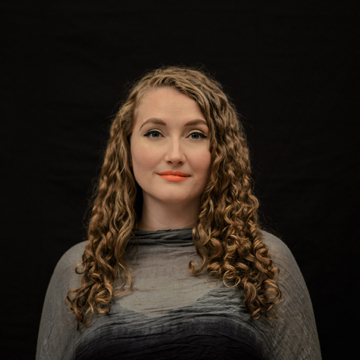
People & Business
ensembleNewSRQ Presents “Ives and Schoenberg at 150”
November 5, 2024 | Sarasota
ensembleNEWSRQ (enSRQ), the innovative chamber music ensemble, continues its ninth season with ensembleNewSRQ with “Ives and Schoenberg at 150,” a concert celebrating the 150th birthdays of two revolutionary composers, Arnold Schoenberg and Charles Ives. Born just a month apart in 1874, Schoenberg and Ives each transformed the landscape of contemporary music with unparalleled vision and innovation. This special program features Charles Ives’ iconic, “Piano Sonata No. 2: Concord, Mass. 1840-1860,” brought to life by the renowned pianist and one of the world’s great interpreters of the music of Charles Ives, Stephen Drury, in his ensembleNewSRQ debut. Schoenberg’s evocative “Pierrot lunaire” will be performed by the celebrated local vocalist Thea Lobo. Blending instrumental mastery with expressive vocal artistry, this performance offers an unmissable tribute to two
towering figures in music history. The concert is Monday, November 25, 7:30 p.m., at First Congregational Church, 1031 S. Euclid Ave., Sarasota. A post-concert reception will follow, offering attendees the chance to meet the guest artists. Single tickets are $30. For more information on ticket packages and single tickets, including student ticket pricing, visit www.EnSRQ.org.
Violinist Samantha Bennett and percussionist George Nickson are the group’s founders and co-artistic directors.
“We’re incredibly honored to be joined by pianist Stephen Drury, who is recognized worldwide for his interpretations of the music of Charles Ives,” says Nickson. “In particular, his performance of Ives’ ‘Concord Sonata’ (his studio recording will be released later this year) is definitive and captivating.”
“These two pieces are some of the oldest works ever programmed by us at enSRQ, and for good reason,” says Bennett. “Both Schoenberg and Ives transformed the directions of composition throughout the 20th century. We owe so much to these two great masters. In many ways, Schoenberg is ‘new music’s’ Mozart. Working on and studying ‘Pierrot lunaire’ has brought us back to the fundamentals of contemporary classical music.”
EnSRQ musicians performing in this concert include: George Nickson, conductor; Samantha Bennett, violin and viola; Betsy Traba, flutes; and Calvin Falwell, clarinets.
Pianist and conductor Stephen Drury has performed worldwide, from Carnegie Hall to the Leipzig Gewandhaus, and even in remote regions like Pakistan and Greenland. Known for championing contemporary music, he has earned critical acclaim for his interpretations of 20th-century composers, including Charles Ives, György Ligeti,
and John Cage. Drury has worked with many leading composers, such as Steve Reich, Olivier Messiaen, and John Zorn, and has recorded works by Cage, Carter, Ives, and others. He directs the Callithumpian Consort and the Summer Institute for Contemporary Performance Practice at the New England Conservatory, where he also teaches.
Hailed as “excellent,” “impeccable,” and “limpidly beautiful,” the Sarasota resident and Grammy-nominated mezzo-soprano Thea Lobo has captivated audiences in recent performances with organizations such as Bach Vocal Artists, Contemporary Art Music Project, Key Chorale, and more. Her engagements include appearances at Boston’s Symphony Hall and collaborations under renowned conductors like Harry Christophers and Andris Nelsons. Lobo has performed with esteemed ensembles including the Firebird Ensemble, Boston Baroque, and the Naples Philharmonic. In addition to her performance career, she serves as the artistic and executive director of the Indictus Project, which highlights the works of historically excluded composers, and is a classical host on WSMR.
Charles Ives (1874-1954) was a groundbreaking American composer whose innovative, experimental approach placed him at the forefront of modernist music. Early in his career, Ives struggled to balance his love for American folk traditions with formal classical training. His most prolific period, from 1908 to 1927, saw the creation of major works like “Three Places in New England,” “The Unanswered Question,” and “Fourth Symphony,” which fused polytonality and aleatoric elements with American sounds. Influenced by transcendentalist philosophy, Ives developed a unique style that treated all sounds as musical, foreshadowing the avant-garde movement and establishing him as a pioneer of contemporary art music.
Arnold Schoenberg (1874–1951) was an Austrian-born composer and a pioneer of the Second Viennese School. Initially influenced by tonality, he shifted to “free atonality” around 1907, producing groundbreaking works like “Pierrot lunaire” (1912). Schoenberg later developed the twelve-tone technique, a revolutionary method that abandoned traditional tonality. Forced to flee Nazi Europe, he moved to the U.S., teaching at UCLA from 1936 to 1944. Though controversial, Schoenberg’s innovations profoundly impacted 20th-century music.



You must be logged in to post a comment Login